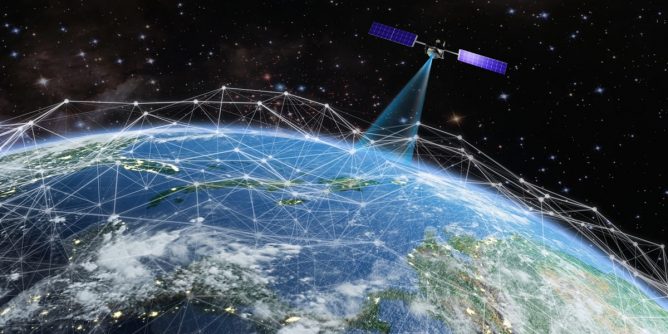Home / Projects
Projects
In recent years, I have led and guided a wide range of specialized cyber, space and national security projects within various government bodies.

UC Berkeley Launches New Initiative to Combat AI-Driven Cybercrimes
UC Berkeley’s Center for Long-Term Cybersecurity and Berkeley Risk and Security Lab launched an initiative to combat AI-driven cybercrimes. In partnership with the cybersecurity company Fortinet, Dr. Gil Baram’s project explores how AI transforms cybercrime landscapes, aiming to develop strategies against these sophisticated attacks. Through global workshops and collaborations, the initiative seeks to equip policymakers and industry leaders with tools to address this emerging threat.

Cyber Threats to Space Systems
Humanity is becoming increasingly dependent on space-based systems. This became particularly evident in the course of the COVID-19 pandemic, when switching to remote highlighted our reliance on satellite-based communications and Internet. Consequently, space is now recognized as a potential warfare domain, prompting many countries to consider the potential challenges to their national security. This project analyzed the potential cyber threats to space systems, creating the knowledge foundation for identifying, preventing and addressing them.

“New Space” - Trends and Challenges
In the past decade, commercial companies have been increasingly engaging the space industry, previously the exclusive domain of governments. This commercialization of the space domain, referred to as New Space, is ballooning at a rapid pace. The project in question involved a comprehensive survey of developments in this sphere and took stock of the range of private, industry, commercial and other New Space actors, with special attention to private enterprises.

Global Human Capital Challenges
Demand for cybersecurity talent is fast outpacing training and acquisition of skills, creating a critical shortage estimated at millions of missing positions. This project conducted a comparative survey of government investments in training workers in cyber, examined how different countries address this gap, and recommended avenues of action.

Influence Operations - How Governments Cope
Influence operations in the cyber domain are an increasingly common occurrence. They often incorporate cyber warfare techniques and are used mostly by nations interested in influencing public opinion in an adversary country. This project examined the main methods used in these operations and various methods developed to counter these.

Data Breaching - Reporting Compliance
Cyberattacks often result in massive theft of private information. Countries around the world are updating laws on information protection and privacy; many now require commercial and other bodies to report cyber incidents and breaches, with heavy fines for non-compliance. This project reported on international reporting practices and how this impacts companies, organizations and the public.

State Cybersecurity - Normative or Proactive?
Leading countries are updating their force building and action strategy on cyber, resulting in stronger cyber capabilities and strategies allowing more robust action in this domain than in the past. This project examined this shift from a normative approach to a proactive one, indicating an important change in acceptable norms and international consensus.
